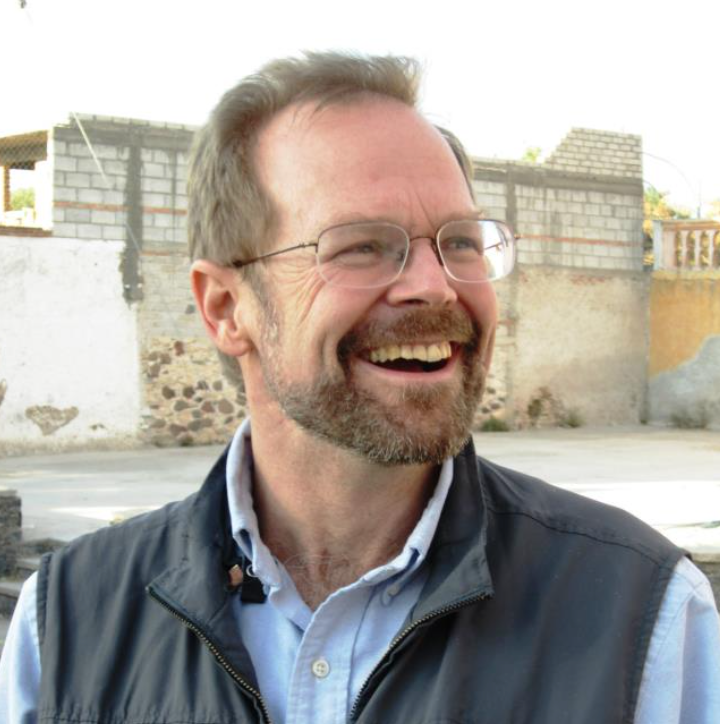
“The experience of war can heighten one’s appreciation of daily life, if only because one is all too aware that it can end in an instant.”
More than any other living writer, Christopher Merrill, a 2019 Guggenheim Fellow, has mastered writing with power and accuracy about violence ecologies. Americans have now been at war for eighteen straight years. The US Department of Defense has a larger carbon footprint than Sweden or Denmark. Merrill’s work as a writer, thought leader, and cultural envoy, as he readily notes, exists as an eerie contrast to this prolonged state: he shows how wars, cultural and ecological disasters, can also offer moments of human hope and solidarity in the border-free ecosystems of writing and the arts.
A couple years ago I was talking to Chris about cultural and environmental life in war zones. He offered really magical ecological thoughts: on the strange beauty of ecologies even amidst the chaos of war, even amidst the fact they keep getting blown up again and again and again. It was a startling image and haunted me.
An internationally renowned poet and journalist, Chris leads a hectic existence: dipping in and out of war zones, where he collaborates on writing workshops, readings, and offers collegial support. As director of the International Writing Program at the University of Iowa since 2000, Merrill has conducted cultural diplomacy missions to more than fifty countries. He served on the U.S. National Commission for UNESCO from 2011-2018, and in April 2012 President Barack Obama appointed him to the National Council on the Humanities.
Chris has published six collections of poetry, including Watch Fire, for which he received the Lavan Younger Poets Award from the Academy of American Poets; many edited volumes and translations; and six books of nonfiction, among them, Only the Nails Remain: Scenes from the Balkan Wars, Things of the Hidden God: Journey to the Holy Mountain, The Tree of the Doves: Ceremony, Expedition, War, and Self-Portrait with Dogwood. His writings have been translated into nearly forty languages; his journalism appears widely; his honors include a Chevalier des Arts et des Lettres from the French government, numerous translation awards, and fellowships from the John Simon Guggenheim Memorial and Ingram Merrill Foundations.
I talked by phone with Chris, who spent part of 2019 piloting a mentorship program for women writers from Somalia, Italy, Mauritius, Colombia, Argentina, Kenya, South Africa, Mexico, and Botswana.
—Leslie Carol Roberts
THE BELIEVER: Your work takes you on the road on a planetary scale—how many days a year?
CHRISTOPHER MERRILL: I travel abroad on average about once a month, often to places of strategic interest—Afghanistan, Bolivia, Congo, Lebanon, Nigeria, Palestine, Russia, Rwanda, Syria, Turkey, Ukraine, Venezuela—to give readings and lectures, teach creative writing workshops, and connect with local writers, artists, and cultural figures. In 2008, we created a program called Lines & Spaces, which has taken scores of American writers abroad, and what we usually discover in our encounters with writers on their home turf is that much more unites us than divides us.
BLVR: Most of us, when we think of “ecologies” don’t point towards the ecological calamities of war zones, but they are distinct ecologies. They’re places cast back in time through destruction. We started to talk about what the language of ecological violence is and might be, and how we might better grasp what it means to be human through language—can you talk more about this?
CM: In 1992, a military monitor stationed in Dubrovnik, Croatia told me that Yugoslavia was the most beautiful country in the world—and the most fucked up. What most impressed him in this medieval walled city, which had just emerged from a seven-month siege by the Yugoslav National Army, was its odd mixture of beauty and violence. While some attributed the vicious nature of the fighting to what Freud called “the narcissism of small differences,” the notion that nearly indistinguishable differences among neighboring communities can lead to unimaginable cruelty, the monitor had a simpler explanation: “Here they hate with their whole bodies,” he said—an insight germane to any discussion of “violence ecologies,” which may be defined as a systems approach to understanding the connection between environmental degradation and security.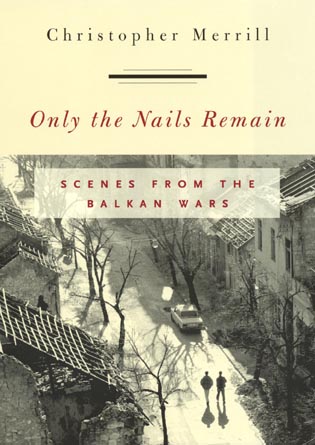
BLVR: You also observed how climate change worsens or amplifies historic schisms, ethnic and religious, as humans are forced to compete for scarce resources.
CM: Even a cursory examination of history reveals that a scarcity of resources can trigger conflict—it was no accident that Syria suffered an extreme drought, exacerbated by climate change, for three of the five years before it descended into civil war—and if some scientists are loathe to suggest a direct link between environmental factors and the outbreak of war it is still easy to imagine why a people uprooted from their ancestral lands will sometimes attack those they hold responsible for their suffering. Climate change and war are accelerating migration—there are more refugees now than at any other point in history; hence it stands to reason that we will see ever more conflicts as the earth grows ever warmer. Professor Michael Klare observes, “While many academics and politicians cling to the ‘clash of civilizations’ paradigm to explain world affairs, those who have been watching developments closely recognize that ethnic and religious schisms are often caused or worsened by competition over scarce supplies of land, food, and water.”
BLVR: In your book Only the Nails Remain, you locate a language of violence ecologies.
CM: On my first Balkan journey, a Slovenian friend and I made a three-day hike through the Pohorje Mountains, near the end of which we came to a stone structure used by the Partisans in World War II, where we planned to spend the night. But it was filled with refugees from Bosnia, and my friend didn’t have the heart to ask them any questions, determined to put as much distance as possible between these latest victims of the Serbian war machine and his own life in the newly independent country of Slovenia. We hiked up and down steep hills to another hut, my heart aching over this marriage of natural splendor and shattered lives. And when I traveled to Croatia, Montenegro, Serbia, and Bosnia, I was often struck by the juxtaposition of beauty and violence: the Miljacka River, for example, running clear for the first time in a century through the center of the besieged capital of Sarajevo, where nearly 12,000 people were killed in the war, including more than 1,500 children. Only the Nails Remain: Scenes from the Balkan Wars was where I tried to find a language adequate to these forms of violence ecology, which meant, among other things, describing as fully as possible the sights and sounds and textures of war—the strange mixture of boredom and terror, despair and hilarity. I was keen to capture every dimension of life under siege, including the gallows humor that lightened so many dark moments. For it seems to me the only antidote to violence ecologies are truthful representations of the disasters, both as they unfold and then in retrospect. Accurate diagnoses begin with honest reckonings.
BLVR: Were you angry when Peter Handke received the Nobel Prize for Literature in 2019?
CM: I was very angry over the Swedish Academy’s decision to award this year’s Nobel Prize to Peter Handke. The Austrian novelist’s determination to ignore or render opaque the overwhelming evidence of Serbian crimes against humanity and genocide is a perverse example of what the Irish writer Hubert Butler called “the modern indifference to evidence,” which seems to be integral to policymaking in the Trump administration. Handke’s reflections in his travelogue A Journey to the Rivers: Justice for Serbia on photographs from Serbian-run concentration camps should have earned him a permanent place in the annals of infamy, as I wrote at the time:
He accused Muslim prisoners of assuming “the pose of suffering” to win the world’s sympathy: “Who can tell me I am mistaken or even malicious when, looking at the pictures of the unrestrainedly crying face of a woman in closeup behind the bars of a prison camp, I see also the obedient following of directions given by the photographer of the international press agency outside the camp fence; and even in the way the woman clings to the wire I see something suggested by the picture merchant?”
Fake news, in other words. This makes my blood boil.
BLVR: Afghanistan’s been a country in perpetual war for more than thirty years. About it, you mentioned these shimmery moments of beauty, regardless of the endless war.
CM: The experience of war can heighten one’s appreciation of daily life, if only because one is all too aware that it can end in an instant. I have traveled several times to Afghanistan—to Kabul, Jalalabad, Mazer-e-Sharif, Balkh, and elsewhere—and I am always struck by the juxtaposition of the land’s breathtaking beauty and the scale of the violence carried out there over the last forty years. For example, flying in a helicopter from Kabul to Jalalabad near the border with Pakistan, I followed the example of the British defense contractor seated next me, who was scanning the snow-covered fields and mountains for any sign of enemy combatants, and what I saw below was both riveting and unnerving. I wanted the flight to go on forever.
BLVR: And meanwhile, you redesigned and directed the International Writing Program at Iowa, heading it now for twenty years.
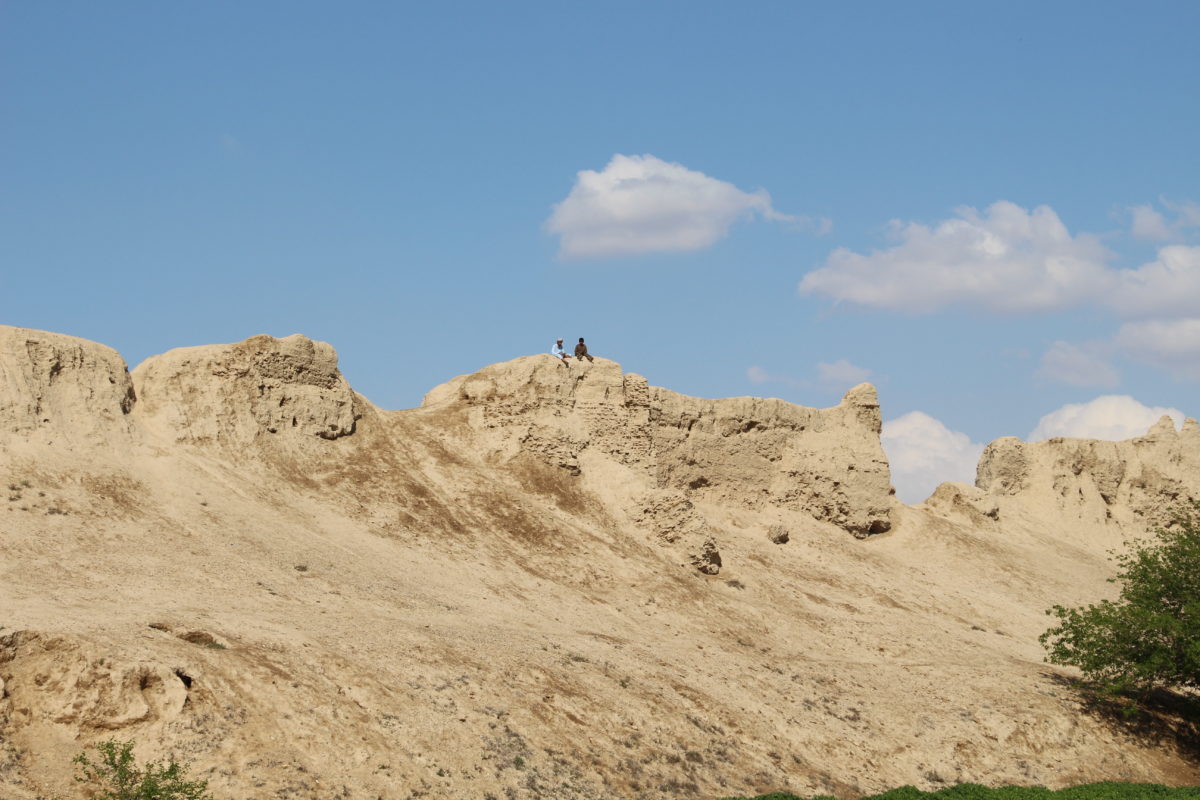
CM: When I was hired to direct the University of Iowa’s International Writing Program (IWP), in 2000, I thought my traveling days were over. I had spent the previous decade reporting on, and writing books about, the World Cup in Italy, the Balkan Wars, and the Holy Mountain of Athos, in northern Greece. The birth of our first child had made me wary of covering another war, and with a second one on the way I devoted my energy to rebuilding the IWP, the mismanagement of which in the 1990s had caused it to collapse. It seemed that wherever I turned there were intractable problems to solve, which required me to spend a lot of time with accountants, auditors, and lawyers, acquiring an administrative skill set I had not imagined I needed. When I wondered aloud one day whether it was worth trying to salvage the IWP, an older colleague advised me not to worry about the roadblocks I was encountering. What worries me at a roadblock, I replied, is a drunken Serb with a Kalashnikov. Academic politics is small beer compared to that.
The world comes to Iowa was the IWP’s mantra for its first thirty-five years. But after 9/11, when it was common in foreign policy circles to ask why the rest of the world hated America, my views began to change. In 2004, I was appointed to an advisory committee to prepare a report for the State Department on cultural diplomacy, the writing of which fell to me, and in the course of traveling to Oman, Egypt, the United Kingdom, Malaysia, and Norway I came to see the IWP’s mission in different terms: as a two-way conversation with writers from abroad, which starts with listening. This is, of course, the first principle of journalism, and I made it central to the IWP. E. M. Forster’s advice to novelists—“Only connect”—became the governing idea not only of our fall residency, which annually hosts 25-35 distinguished writers from around the world, but of all our cultural diplomacy activities—conferences, digital learning courses, Lines & Spaces tours to countries of strategic interest, summer writing camps for high school and college students, and my work as a cultural envoy, which has taken me to dozens of countries.
BLVR: And one is Iraq?
CM: In early 2012, not long after the last American troops had left Iraq, I traveled to Baghdad, Erbil, and Sulaymaniyah to meet writers and other cultural figures, teach poetry workshops, and see what forms of connection might be created. In a meeting with the Deputy Minister of Culture, a courtesy call I made with two American diplomats who were keen to learn what plans he had in mind for Baghdad’s designation as the Arab Cultural Capital, it occurred to me that Baghdad might conclude this year-long celebration by announcing that it would mount a bid to become a UNESCO City of Literature. I had led Iowa City’s effort to become a UNESCO City of Literature, and when I told the Iraqi official that I would be happy to help him put together an application he grew excited, observing that such a designation could help to heal the rifts in his society between Shi’a and Sunni Muslims, Arabs and Kurds. “My mind is churning with ideas,” he said, charging me with the responsibility of translating this idea into a successful bid to join the UNESCO Creative Cities Network. Which I did, traveling frequently to Baghdad to work with a team of writers and scholars, municipal and federal officials, and American diplomats.
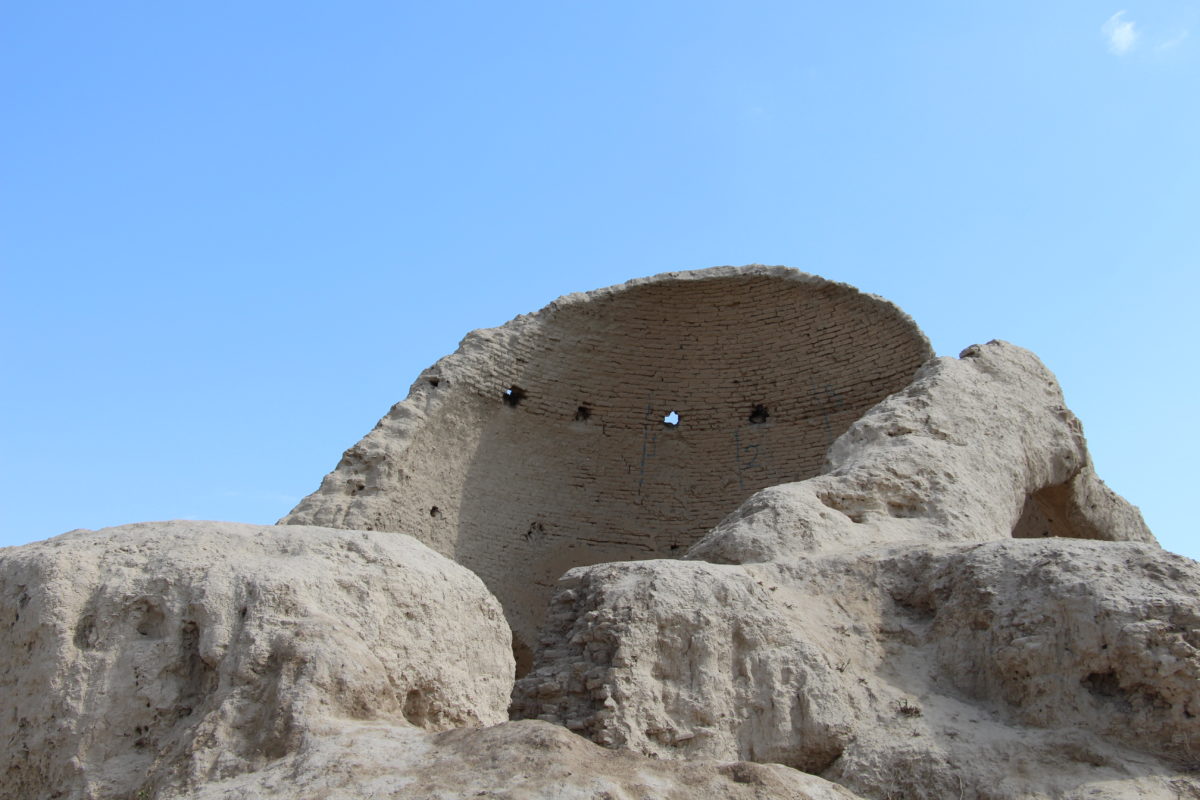
BLVR: People often ask how to be hopeful in these climate change times; it’s pretty fucking hopeful for you to delve into these violence ecologies with the banner that says, “Writing changes everything!”
CM: Better to say that good writing can clarify matters, which may lead to change. Clarity is what I seek in writing and cultural diplomacy. During one meeting in the Green Zone, for example, an English professor from Al-Mustansiriyah University, who had made a close study of Iowa City’s UNESCO bid, lamented the fact that Baghdad had no tradition of teaching creative writing and thus stood no chance of becoming a City of Literature. I replied that we had highlighted this pedagogy, because it was what had secured our place in the public imagination as a center of creative writing. But writing itself was invented in Mesopotamia, I reminded him. Baghdad has a long history as a center of artistic and intellectual production, and this could serve as the scaffolding for its bid—which proved to be successful. The Baghdad UNESCO City of Literature now has offices in the House of Wisdom—a palace overlooking the Tigris River, which was once part of Saddam Hussein’s presidential office—and organizes a range of literary activities, connecting Iraqi writers to the world. With the recent addition of Sulaymaniyah, the ancestral home of Kurdish literature, in the UNESCO Creative Cities Network, Arabic and Kurdish writers will connect in new ways—a healing gesture, if you will, in this war-torn land.
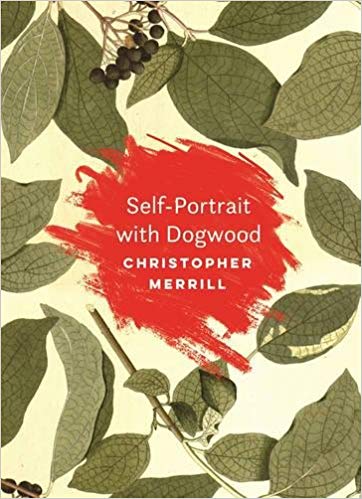 BLVR: And how culture, the creation of poems and art and books, is somehow able to persist in the face of this. How does the language shift with the ecologies? Or how do we see these ecologies differently through language?
BLVR: And how culture, the creation of poems and art and books, is somehow able to persist in the face of this. How does the language shift with the ecologies? Or how do we see these ecologies differently through language?
CM: The Iraqi poet Naseer Hassan told me that at the height of civil war in his country he wandered around Baghdad for forty days, looking for poems for a book titled Dayplaces, some of which we translated together when he was in residence in the IWP. His was a philosophical attempt to remake the language that in the time of Saddam Hussein had been used against him and his family, and so he wrenched it apart in the same way that in the aftermath of the Final Solution the poet Paul Celan sought to redeem the German language, which in his view had to “pass through the thousand darknesses of deathbringing speech.” Here is my favorite poem by Hassan:
The Story of (That) Time
The story of that time; like tyrants who gargle in the depths; we were in the quiet of the forest, night was in us; maybe we were stars, maybe we carried our clothes to the place where the river enters.
Dante says: the Centaur throws tyrants into the river of blood; I say: the forest is in the heart; and we inhabit Al Midan Square in homeless rooms; judgment days pass through us colorlessly, and we are naked in the square of the universe.
BLVR: On Friday, January 3, Iranian Major General Qassem Suleimani was assassinated in a US drone attack while driving from Baghdad Airport. I’d be interested to hear your thoughts, as someone with deep experience in Iraq and a leader in US-Iraqi cultural outreach.
CM: In a stroke Donald Trump managed to unite Iranians, tens of thousands of whom had marched this fall in protest against their government; muted the effects of weeks of large-scale anti-Iranian protests in Iraq; endangered American soldiers, diplomats, oil workers, and others working in the region; led the Iraqi parliament to pass a resolution ordering the government to expel U. S. forces from the country and the Iranian government to suspend its commitments to the 2015 nuclear deal; suspended training programs designed to counter ISIS; cemented anti-American sentiment across the Middle East; and made disorder the new normal. It is true, as many commentators have noted, that Suleimani was a very dangerous figure. But he was also the highest-ranking military official in Iran, and Trump has established a dangerous precedent with this assassination. Just as his slur, Fake News, has entered the lexicon of authoritarian leaders around the world, so his decision to kill a government official may give the green light to others to do the same to their enemies. We will regret subjecting conventional forms of international relations to the law of the jungle. And Trump’s tweeted threat to destroy important cultural sites in Iran is not only a war crime in the making but further proof that his has become a lawless regime.
I have a personal investment in this story, having made the first of two exploratory journeys to Iran, at the behest of the State Department, before I undertook any cultural diplomacy missions to Iraq. If my work in both countries belongs to the larger project of connecting writers to literary worlds beyond their borders, it is also linked to the twin tasks of reconciliation and reconstruction, which remain critical to any hope for peace in the region. I arrived in Tehran just after the Green Movement protests in 2009, and what I felt in Shiraz, Persepolis, and Isfahan was what I have felt in Baghdad, Basra, Najaf, and Sulaymaniyah—the beating hearts of ancient civilizations, which produced proud and sophisticated cultures determined to write their own histories. I feared that Trump’s abandonment of the international nuclear arms control agreement would lead to war, and here we are. When I checked in with some of my Iranian and Iraqi friends, one said, “Unfortunately, we don’t know what is going to happen tomorrow!” This morning at the gym my congressman said to me, “You won’t be going back to Iraq anytime soon.” Indeed.




